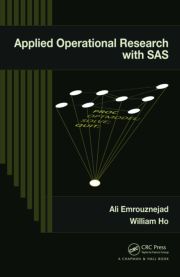Khoshroo, A., R. Mulwa, A. Emrouznejad and B. Arabi (2013), “A Non-Parametric Data Enveloped Analysis Approach for Improving Energy Efficiency of Grape Production,” Energy, Accepted, In Press
Grape is one of the world’s largest fruit crops with approximately 67.5 million tonnes produced each year and energy is an important element in modern grape productions as it heavily depends on fossil and other energy resources. Efficient use of these energies is a necessary step toward reducing environmental hazards, preventing destruction of natural resources and ensuring agricultural sustainability. Hence, identifying excessive use of energy as well as reducing energy resources is the main focus of this paper to optimize energy consumption in grape production.
In this study we use a two-stage methodology to find the association of energy efficiency and performance explained by farmers’ specific characteristics. In the first stage a non-parametric Data Envelopment Analysis is used to model efficiencies as an explicit function of human labor, machinery, chemicals, farmyard manure (FYM), diesel fuel, electricity and water for irrigation energies. In the second step, farm specific variables such as farmers’ age, gender, level of education and agricultural experience are used in a Tobit regression framework to explain how these factors influence efficiency of grape farming.
The result of the first stage shows substantial inefficiency between the grape producers in the studied area while the second stage shows that the main difference between efficient and inefficient farmers was in the use of chemicals, diesel fuel and water for irrigation. The use of chemicals such as insecticides, herbicides and fungicides were considerably less than inefficient ones. The results revealed that the more educated farmers are more energy efficient in comparison with their less educated counterparts.














